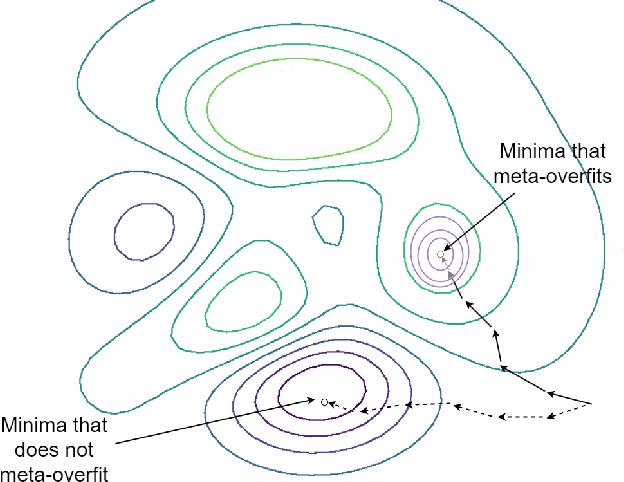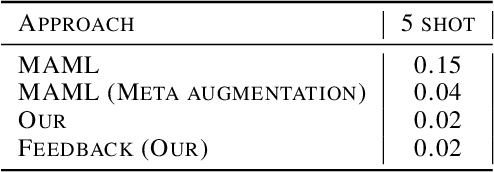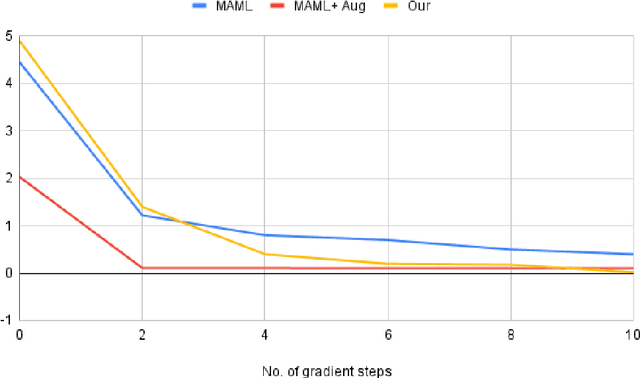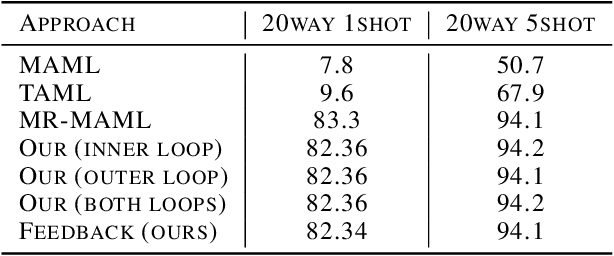Perturbing the Gradient for Alleviating Meta Overfitting
Paper and Code
May 20, 2024



The reason for Meta Overfitting can be attributed to two factors: Mutual Non-exclusivity and the Lack of diversity, consequent to which a single global function can fit the support set data of all the meta-training tasks and fail to generalize to new unseen tasks. This issue is evidenced by low error rates on the meta-training tasks, but high error rates on new tasks. However, there can be a number of novel solutions to this problem keeping in mind any of the two objectives to be attained, i.e. to increase diversity in the tasks and to reduce the confidence of the model for some of the tasks. In light of the above, this paper proposes a number of solutions to tackle meta-overfitting on few-shot learning settings, such as few-shot sinusoid regression and few shot classification. Our proposed approaches demonstrate improved generalization performance compared to state-of-the-art baselines for learning in a non-mutually exclusive task setting. Overall, this paper aims to provide insights into tackling overfitting in meta-learning and to advance the field towards more robust and generalizable models.
 Add to Chrome
Add to Chrome Add to Firefox
Add to Firefox Add to Edge
Add to Edge